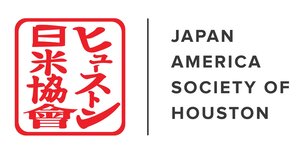Japanese Language Program
Course Descriptions
Just Getting Started (Pre 101-1)
Students learn:
Basic expressions for:
Greetings
Self-introduction
Communicating with front desk clerks at hotels
Communicating with salesclerks
Communicating with taxi drivers, bus drivers, etc.
Buying over-the-counter medication
101-1 | Japanese for Busy People Vol 1 (4th Ed.) | Lessons 1-3
Students learn:
Japanese Phonetic Symbols: Master the basics of Hiragana
Greeting and Self-Introduction Expressions: Acquire common expressions for greetings and self-introductions
Numbers 1 through 10: Learn numbers from 1 to 10
Demonstrative and Interrogative Pronouns: Understand demonstrative pronouns and interrogative pronouns (who, whose, what, what time, how much)
Goals:
Achieve proficiency in recognizing and using Hiragana
Gain insight into Japanese culture
Comprehend the distinctions between Japanese and English syntax
101-2 | Japanese for Busy People Vol 1 (4th Ed.) | Lessons 4-7
Students learn:
Japanese Loan Words: Learn Katakana symbols used for loan words
Large Numbers: Understand numbers greater than 10
Counters: Familiarize yourself with counters for solid items, floppy items, and rod-like or cylindrical items
Interrogative Pronouns: Grasp interrogative pronouns such as "how much," "where," "when," and "with whom"
Verbs of Movement: Learn verbs for "go," "come," and "return"
Vocabulary for Destinations: Expand your vocabulary related to destinations
Particles に: Understand the use of the particle に for direction and time reference
Japanese Currency: Familiarize yourself with Japanese currency
Days of the Week and Month: Learn the days of the week and days of the month
Goals:
Able to recognize Katakana symbols proficiently
Can identify and understand vocabulary related to transportation and destinations
Capable of communicating effectively with salesclerks
Can recognize and understand the prices of merchandise
Destination Arrival Inquiries
102 | Japanese for Busy People Vol 1 (4th Ed.) | Lessons 8-11
Students learn:
A variety of verbs and their conjugations (affirmative, negative, present, and past tense)
Two types of adjectives and conjugations (i-adjective and na-adjective
The time reference words and means of transportation
The interrogative pronouns (where, with whom, when)
Counter for people
Goals:
Can talk about daily activities
Can talk about activities that one is frequently engaged in
Can talk about the plan on weekends
Can ask and answer the time, days, or dates for a meeting or a business appointment
Can express impressions about experiences
Can place an order at Izakaya (Japanese-style bar)
103 | Japanese for Busy People Vol 1 (4th Ed.) | Lessons 12-16
Students learn:
The verbs for giving and receiving
Describing locations of things and people
Words for positions, things near a station, office supplies, etc.
The expressions for:
Inviting someone
Making suggestions
Offering to help someone
Goals:
Can ask and describe things’ characteristics in adjectives with appropriate conjugation
Can recognize basic vocabulary
Words for gifts
Events
Places for rendezvous spots
Verbs for offering to do something
Develop conversation skills for the following situation:
Being Invited to a friend's house and commenting about the food served.
Talking about birthday gifts
Talking about the weather
Inviting someone to an event and scheduling for meeting
Accepting an invitation or refusing an invitation
Offering to help someone
105 | Japanese for Busy People Vol 1 (4th Ed.) | Lessons 21-24
Students learn:
the grammar patterns with the Te-form いますfor:
Present progressive
Habitual actions
Current states
Particle も to describe duplication.
Particle は for contrasting
Negative Te-form …ないで
Gerund Dictionary form + こと
Goals:
Can inquire and describe someone’s current activities
Can discuss routine activities
Can contrast two things using the particle は
Can inquire and describer someone’s current state using expressions like つとめています, ついています and すんでいます
Can effectively communicate health issues to a medical doctor
Can ask and answer about the rules in the public space using …ないでください and …てもいいですか
302 | Minna no Nihongo Vol 2 | Chapters 29-31
Students who have finished Minna no Nihongo Vol. 2 Chapters 26-30 or at the equivalent level learn:
Transitive verbs and intransitive verbs
Transitive verbs + てあります/Transitive Verb+ ておきます
Te-Form + しまいました to describe something unpredicted things happened
Expressing intentions
Volitional Form + と思う
Dictionary Form + つもりです
Goals:
Can differentiate intransitive verbs and transitive verbs
Can understand and describe the state of things
Can understand and describe that something is done for some reasons
Can understand and describe that someone is well prepared for something
Can understand and describe someone’s project or plan in the future
303 | Minna no Nihongo Vol 2 | Chapters 32-34
Students who have finished Minna no Nihongo Vol. 2 Chapters 29-31 or at the equivalent level learn:
Giving advice Ta-Formほうがいい Negative Plain Formほうがいい
Speculation でしょう だろう かもしれない
Imperative Forms
Expressing “the same way as~” …とおりに
Expressing ”without doing…” …ないで
Compare and Contrast …てから and …たあとで
Goals:
Can offer advice or make a strong suggestion
Can understand the expression used in the weather forecast
Can express one’s speculation appropriately according to the level of uncertainty
Can use the appropriate imperative form according to various circumstances
Can give instruction with various grammar patterns
Can explain information in chronological order
Intermediate Japanese Across the Four Language Skills | Ch. 2
Reading:
Read someone’s mails and emails and understand the purposes
Conversations:
Can make polite requests to teachers using appropriate honorific forms and humble forms
Writing:
Can write polite thank-you letters to someone who has helped you
Listening:
Can understand a casual conversation between two friends
Can understand a speech about difficulties international students face when it comes to praising someone of higher status
